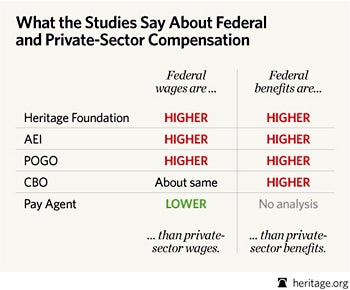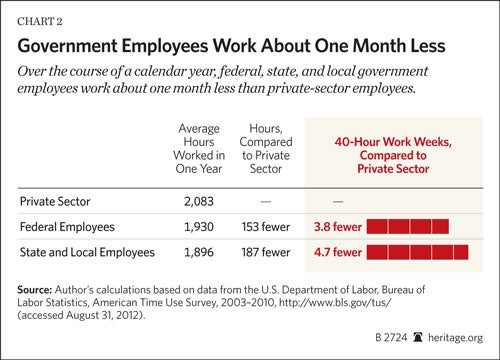The Washington Post has a sympathetic article today on federal workers who consider themselves unfair victims of the sequester. Unfortunately, the article does not consider data and evidence, instead characterizing criticism of federal worker compensation as mere assertion, jealous emotionalism, or politicking.
Federal employees are upset about “perceptions” of government work, according to the people interviewed for the story. They have to defend themselves from “arguments” about excessive compensation and short working hours. They are “the target of popular rage” because the private sector is “frustrated, even jealous.” There is a “drumbeat” of negativity, “ritual denunciation,” and “bashing” of federal workers.
These sentiments supposedly come from “talk radio and websites devoted to bashing the government.” They’re driven by “a small minority of vociferous people.”
A reality check is needed here. Numerous independent analyses—including from The Heritage Foundation, the American Enterprise Institute, and the Congressional Budget Office—find that compensation for federal employees is higher than for comparable private-sector workers. The Government Accountability Office recently summarized the results of these studies:
As these studies indicate, overcompensation of federal workers is a widely acknowledged fact, not a mere “perception” generated from a dark corner of the Internet. And far from “bashing” federal workers, these studies are calling attention to a serious fiscal problem—the overcharging of taxpayers for federal personnel costs. Should we just ignore this problem because some federal employees are offended?
As for the question of being “underworked,” there is strong evidence that federal employees do work less, on average, than private-sector employees—about one month less per year, in fact.
It’s fine for the media to get federal employees’ reactions to sequestration, but hard data and evidence should accompany the stories.
































